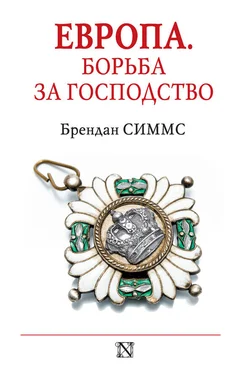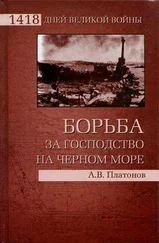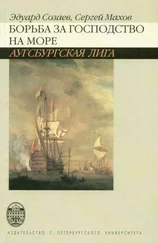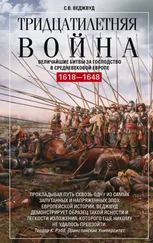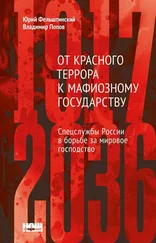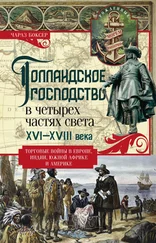Бальфур произнес эту фразу в 1906 г. ‘Navy estimates, 1906–1907’, Hansard, vol. 162, col. 112. (1906).
John Albert White, Transition to global rivalry. Alliance diplomacy and the Quadruple Entente, 1895–1907 (Cambridge, 1995), p. 288. В другой работе подчеркивается приоритет имперских факторов: Keith Wilson, The limits of eurocentricity. Imperial British foreign and defence policy in the early twentieth century (Istanbul, 2002).
Hildebrand, Das vergangene Reich, p. 245.
Frank Boesch, ‘“Are we a cruel nation?” Colonial practices, perceptions, and scandals’, in Dominik Geppert and Robert Gerwarth (eds.), Wilhelmine Germany and Edwardian Britain. Essays in cultural affinity (Oxford, 2008), pp. 115–40, especially pp. 121–3.
Hildebrand, Das vergangene Reich, p. 249.
Uwe Liszkowski, Zwischen Liberalismus und Imperialismus. Die zaristische Aussenpolitik vor dem Ersten Weltkrieg im Urteil Miljukovs und der Kadettenpartei, 1905–1914 (Stuttgart, 1974), pp. 56–77.
Geyer, Russian imperialism, pp. 295–6.
Matthew Seligmann, ‘Intelligence information and the 1909 naval scare: the secret foundations of a public panic’, War in History, 17, 1 (2010), pp. 37–59, and Phillips Payson O’Brien, ‘The 1910 elections and the primacy of foreign policy’, in Mulligan and Simms (eds.), Primacy of foreign policy in British history, pp. 249–59.
Christopher Andrew, The defence of the realm. The authorized history of MI5 (London, 2009), pp. 3–18.
David Lloyd George, Limehouse Speech, 30 July 1909.
Jean H. Quataert, ‘Mobilising philantropy in the service of war: the female rituals of care in the new Germany, 1871–1914’, in Manfred F. Boemeke, Roger Chickering and Stig Förster (eds.), Anticipating total war. The German and American experiences, 1871–1914 (Cambridge, 1999); Roger Chickering, ‘“Casting their gaze more broadly”: women’s patriotic activism in imperial Germany’, Past and Present, 118 (1988), pp. 156–85, especially pp. 172, 175 and 182–3.
Sheila Rowbotham, A century of women. The history of women in Britain and the United States (London, 1997), p. 82.
Hildebrand, Das vergangene Reich, p. 240.
Friedrich Katz, The secret war in Mexico. Europe, the United States and the Mexican Revolution (Chicago and London, 1981), quotation p. 88, and Reiner Pommerin, Der Kaiser und Amerika. Die USA in der Politik der Reichsleitung, 1890–1917 (Cologne, 1986).
John Lamberton Harper, American visions of Europe. Franklin D. Roosevelt, George F. Kennan and Dean G. Acheson (Cambridge, 1994), p. 31. See Matthew S. Seligmann, ‘Germany and the origins of the First World War in the eyes of the American diplomatic establishment’, German History, 15, 3 (1997), pp. 307–32.
Mark Hewitson, ‘Germany and France before the First World War: a reassessment of Wilhelmine foreign policy’, The English Historical Review, 115, 462 (2000), pp. 570–606 (quotation pp. 594–5).
Hartmut Pogge von Strandmann, ‘Germany and the coming of war’, in R. J. W. Evans and Hartmut Pogge von Strandmann (eds.), The coming of the First World War (Oxford and New York, 1988), p. 111.
Fritz Fischer, War of illusions. German policies from 1911 to 1914 (London, 1975), p. 180.
Keith Jeffery, Field Marshal Sir Henry Wilson. A political soldier (Oxford, 2006), pp. 99–100 and passim.
P.P.O’Brien, ‘The Titan refreshed: imperial overstretch and the British navy before the First World War’, Past and Present, 172 (2001), pp. 145–69, especially pp. 154–5.
Darwin, Empire project, p. 306.
Thomas Meyer, ‘Endlich eine Tat, eine befreiende Tat.’ Alfred von KiderlenWächters ‘Panthersprung nach Agadir’ unter dem Druck der öffentlichen Meinung (Husum, 1996), pp. 295–302.
Groh, p. 432.
«Показной милитаризм» ( нем .) . Примеч. ред.
Hildebrand, Das vergangene Reich, p. 266.
Niall Ferguson, ‘Public nance and national security: the domestic origins of the First World War revisited’, Past and Present, 142 (1994).
Geyer, Russian imperialism, p. 306.
Seton-Watson, Decline of Imperial Russia, p. 676.
Smith, America’s mission, p. 69.
Mustafa Aksakal, The Ottoman road to war: The Ottoman Empire and the First World War (Cambridge, 2008), p. 21.
Aksakal, Ottoman road to war, p. 76.
Имеется в виду генерал от инфантерии Ю. Н. Данилов, в 1909–1914 гг. генерал-квартирмейстер Главного управления Генерального штаба Российской империи . Примеч. ред.
Sean McMeekin, The Russian origins of the First World War (Cambridge, Mass., 2011), p. 6.
Smith, America’s mission, p. 70.
Christopher Clark, The sleepwalkers. How Europe went to war in 1914 (London, 2012), pp. 367–403.
Bridge, Habsburg monarchy, p. 335.
Annika Mombauer, ‘The First World War: inevitable, avoidable, improbable or desirable? Recent interpretations on war guilt and the war’s origins’, German History, 25, 1 (2007), pp. 78–95 (quotation p. 84).
Samuel R. Williamson, Austria-Hungary and the origins of the First World War (Basingstoke and London, 1991), pp. 191, 197 and passim.
Fischer, War of illusions, p. 224.
Это утверждение во многом противоречит фактологии и содержанию описываемых событий и остается целиком на совести автора . Примеч. ред.
Geyer, Russian imperialism, p. 314.
K. M. Wilson, ‘The British cabinet’s decision for war, 2 August 1914’, British Journal of International Studies, I (1975), pp. 148–59 (quotation p. 153).
Martin Ceadel, Living the great illusion. Sir Norman Angell, 1872–1967 (Oxford, 2009), especially pp. 104–14. Также: Ralph Rotte, ‘Global warfare, economic loss and the out break of the Great War’, War in History, 5 (1998), pp. 481–93, especially p. 483.
Bridge, Habsburg monarchy, p. 346.
Fritz Fischer, Germany’s aims in the First World War (London, 1967), pp. 103–4.
Читать дальше
Конец ознакомительного отрывка
Купить книгу
